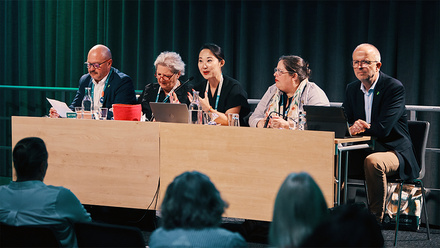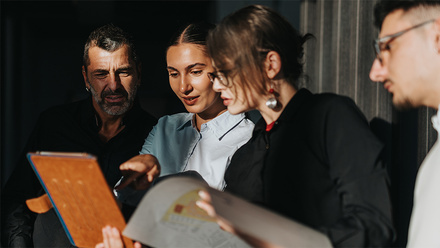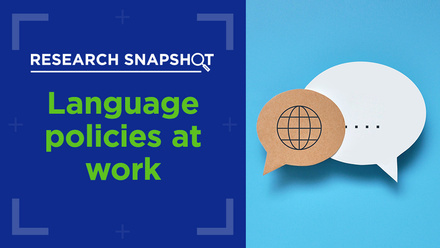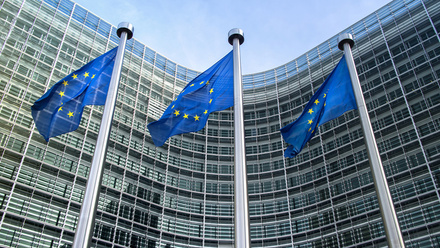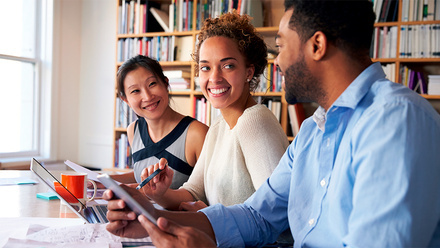30 years of internationalisation in Lithuania
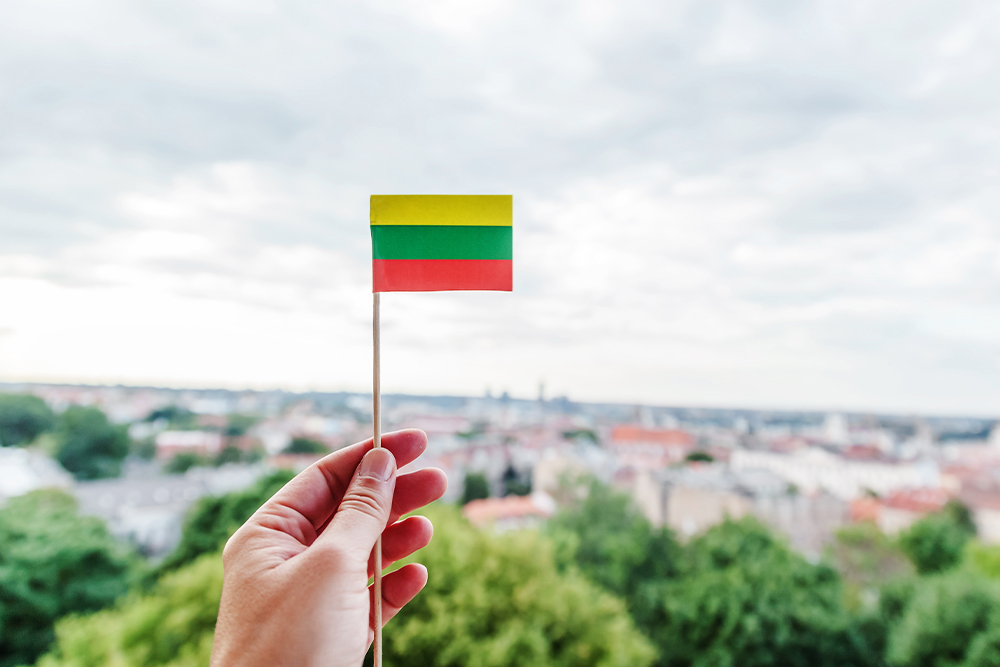
In 2020, the Lithuanian University of Health Sciences (LSMU) is celebrating 30 years of international studies. The process of internationalisation started as soon as Lithuania declared its independence from the Soviet Union in 1990, back when the institution was known as Kaunas Medical Academy. It was not easy in the beginning, but the process developed in the spirit of freedom after the long years of Soviet rule. Spurred on by the fall of the Iron Curtain and the start of the digitalisation process, the LSMU set off on a journey to become one of the leading European universities of health sciences.
The long path towards this vision started with just 17 international students from Lebanon who came to Kaunas to study medicine in English. Today, the university’s international student population comprises more than 1000 students from 71 countries (with Israel, Sweden, Germany and India particularly prevalent), equating to almost 18% of all students and growing by 2% every year.
LSMU has had more than 1100 international graduates from 55 countries since 1996, and we are working towards a goal of 50% of our programmes being offered in English. We offer 16 graduate (ie Bachelor's) programmes and 33 postgraduate courses in English, and we make use of digital study processes via hybrid labs, e-learning platforms, digital patient files, paperless hospitals and telemedicine possibilities. We have been a partner in the Erasmus exchange programme network since 1999, strengthening our academic position and helping to ensure the continuous improvement of our education processes.
It is not enough to focus on academic growth – a crucial task in the process is to ensure a friendly environment for international students
The LSMU is the only specialised biomedical university in the country, but we are also a small, ‘boutique’ type of university, meaning it is difficult to compare our institution with the oldest and largest universities in Europe. Nonetheless, we have reached 115th place in the Emerging Europe and Central Asia region of the QS World University Rankings, and we are in fourth place in that region in the category of international students.
Student support
We have long since realised, however, that it is not enough to focus on academic growth. A crucial task in the internationalisation process is to ensure a friendly environment for international students. The LSMU offers various adaptation programmes, including long-lasting surveys of psychological adaptation, a well-built mentoring programme, tutoring, student and parent ambassador programmes, and psychological counselling. Moreover, academic staff are trained in intercultural communication and emotional support for students. It is the task of the university to ensure that the academic environment allows both students and staff to reach their full potential.
This special focus recognises that international newcomers are a vulnerable group. In the first year, they face a culture shock and have the highest dropout rates. At the LSMU, every first-year international student gets a mentor from the start – an older student who helps with social and practical issues – and a two-week introduction course culminating in a ‘freshers’ camp’. Students are also offered free psychological counselling possibilities throughout their studies.
Moreover, the LSMU conducts an annual survey on psychological adaptation among international students. Students are interviewed about their expectations, studies and social life at the start of their programme. The results provide an opportunity for us to get to know our international students better and to improve the environment according to their expectations. At the start of the second year, a follow-up study is conducted to monitor their adaptation academically, psychologically and socially. During the first academic year, meetings with tutors are organised for international students before important exams or sessions. Cultural and sightseeing trips around Lithuania are offered several times a year, and students can of course take part in sports, dances, singing and other leisure activities at any time.
Strong connections
International students are not just here to adapt to Lithuanian life, of course: they also bring their own cultures and traditions with them. Being an international university means being open to that diversity, as well as maintaining and developing international links and cooperation with partners and alumni.
In former Soviet states, this openness and cooperation with the rest of Europe and the world has had to start from scratch in the past 30 years – and we have made great strides
One important strategic goal is to train internationally competitive professionals who have both general and specialist skills of the highest quality. We want them to be ready for lifelong learning and eager to work for the welfare of society and to maintain links with the university. Through our student ambassadors programme we maintain a strong connection with international students beyond graduation. We are proud of our alumni and we are keen to build strong and mutual bonds. Student ambassadors and alumni participate in university events, communicate with future students and spread good news and success stories.
Internationalisation is a priority: it has been the university’s chosen path since Lithuania gained independence. However, it is not all about the numbers. It is about being an international university, about being open and about sharing knowledge, experience and scientific achievements. Improvement is possible only when we learn and work together for the same goal. In the former Soviet states, this sort of openness and cooperation with the rest of Europe and the world is something we have had to start from scratch in the past 30 years, and we have made great strides. Many challenges remain, but our ideals and values will continue to lead us towards our goal.


